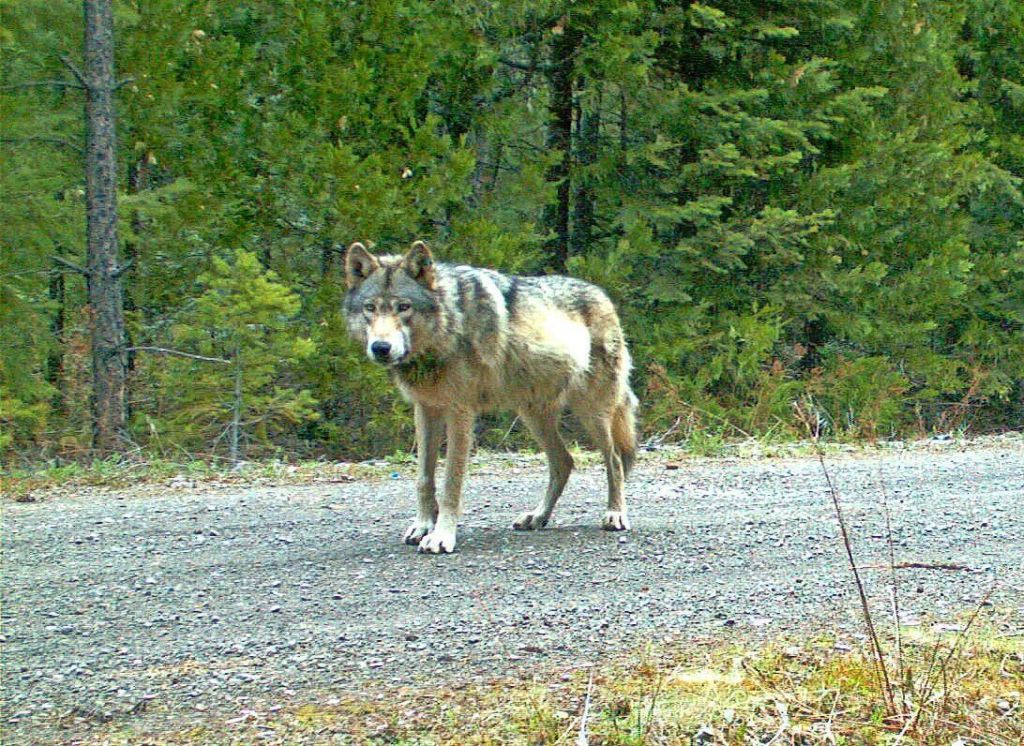After false starts, Oregon wolf compensation reform gains traction
Published 11:53 am Thursday, April 3, 2025

- In this remote camera photo taken May 3, 2014, the wolf OR-7 stands on the Rogue River-Siskiyou National Forest in southwest Oregon’s Cascade Mountains.
After a couple of false starts, legislation intended to reform Oregon’s compensation policy for wolf killings of livestock appears to have gained momentum.
Supporters say the overhaul will help restore trust in the state’s livestock compensation program and discourage the illegal poaching of wolves.
“We have ranchers all over this state who’ve lost faith in this program, that have lost faith in the voting that takes place in this Capitol. This is a way for us, you, to reach back to those individual ranchers, to that community, with a positive vote,” said Sen. Todd Nash, R-Enterprise, who raises cattle.
Trending
During the 2023 and 2024 legislative sessions, lawmakers considered paying ranchers a “multiplier” of the value of livestock lost to wolves.
Ranchers argued the change was necessary because wolves harm their operations in other ways than directly killing livestock, such as lowering the fertility and weight gains of cattle.
However, those earlier proposals ended up dying in committee after environmental groups complained the “multiplier” policy would discourage non-lethal prevention of wolf-livestock conflicts.
In 2025, though, a large bipartisan majority of the Senate has passed a bill that would pay ranchers up to five times the fair market value of a calf, sheep or goat, with a limit of $25,000 per animal.
Senate Bill 777, which was recently approved by a margin of 28-1, will now be considered by the House, where it’s awaiting referral to a policy committee.
The proposal is meant to recognize that the wolf’s return to Oregon is primarily supported by the state’s urban population while imposing burdens on rural residents who never asked for it, said Sen. Jeff Golden, D-Ashland.
Trending
“Our ranchers have been the ones bearing the cost,” he said before the Senate floor vote.
As ranchers have repeatedly described the damage inflicted by wolves over the past three legislative sessions, it’s clear the multiplier proposals are about more than financial compensation, he said.
“What I hear underneath is, ‘please respect us,’” Golden said.
In Wallowa County, which has the state’s highest density of wolves, only about 6% of ranchers participate in the livestock compensation program because it’s seen as ineffective, said Nash, SB 777’s chief sponsor.
“This is an effort to draw them back in,” he said.
Aside from introducing the multiplier effect, the bill increases the proportion of financial assistance for non-lethal wolf deterrence from 30% to 50% of the disbursed funds and eliminates compensation for missing livestock.
“It’s very hard to prove, if not impossible, that you have livestock that are actually missing,” Nash said.
The lone lawmaker to vote against the bill, Sen. Deb Patterson, D-Salem, said she thought the multiplier was excessive, would drain available compensation funds and “does not incentivize wolf conflict avoidance.”
A separate companion bill, Senate Bill 985, would allocate $2 million to the state’s wolf management compensation fund. It’s been approved by the Senate Natural Resources Committee and is now being considered by the budget-setting Joint Ways and Means Committee.
Some Democratic lawmakers said they were voting in favor of SB 777 with the expectation that more funding will also be devoted to anti-poaching efforts by law enforcement.
“There is a balancing act here. I think all of us need to compromise,” said Sen. Kathleen Taylor, D-Portland.
Lawmakers who spoke in favor of the multiplier proposal said it’s not only meant to benefit ranchers, but also strengthen social acceptance of wolves in remote areas.
“Without compensation, there are going to be some real problems,” said Sen. Fred Girod, R-Stayton. “For the wolf’s benefit, please vote for Senate Bill 777. It compensates the rancher and makes it so there’s a better chance the wolf will survive in Oregon.”





